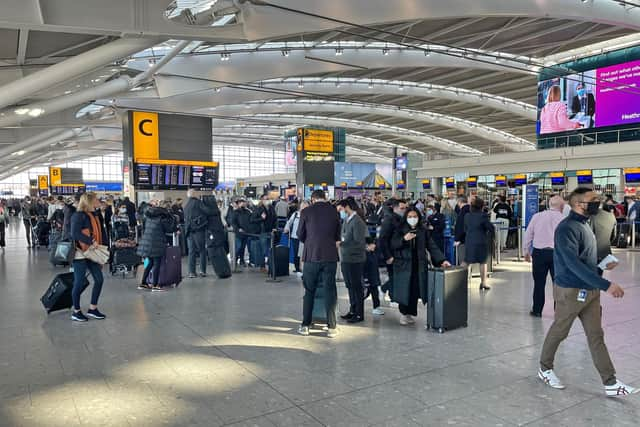BA will hope passengers are as resilient as after its past IT failures
While the cause of each incident is likely to have been different, the airline is developing a reputation for massive computer faults, which, because of its global network, create ripples worldwide.
It’s reached such a state that when you hear about a catastrophic IT problem in aviation, you don’t need to know which carrier is involved to know it’s BA.
Advertisement
Hide AdAdvertisement
Hide AdThese include the airline cancelling all its flights at Heathrow and Gatwick one day in June 2017 because of a major “IT system failure”.


The previous year, another problem caused check in delays at the airports.
But perhaps worst of all was the opening day of Heathow’s Terminal 5 in 2008, where BA’s flights are concentrated, when a baggage system breakdown brought things a standstill.
In the latest episode of BA’s woes, the airline cancelled all its short-haul flights, including those to and from Scottish airports, on Saturday and several more on Sunday due to an unspecified "hardware” issue.
It will have hit particularly hard because passengers are returning to flying after being scared off or prevented by the Covid pandemic.
So that is the last thing they will have expected or wanted.
If the problem had happened in the midst of the travel restrictions imposed to curb spread of the virus, when BA operated as little as one flight a day between Scottish airports and Heathrow, few would have been affected.
But I was surprised to see by how much the airline has ramped up its flights again on these routes, with eight in each direction between Edinburgh and its global hub, even on a Sunday, with up to six at Glasgow and five at Aberdeen.
Advertisement
Hide AdAdvertisement
Hide AdThe good news for BA, however, is on past form, such temporary hitches won’t cause it long-term reputational damage.
As with other areas of travel, if the fare is attractive and the flights convenient, many passengers will be prepared to ignore the theoretical risk that if BA’s systems go down again, it’ll happen while they’re travelling.
A message from the Editor:
Thank you for reading this article. We're more reliant on your support than ever as the shift in consumer habits brought about by coronavirus impacts our advertisers.
If you haven't already, please consider supporting our trusted, fact-checked journalism by taking out a digital subscription.
Comments
Want to join the conversation? Please or to comment on this article.
